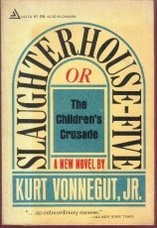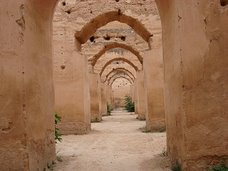(See the original edition of The Hundred Sundrie Flowers, c. 1573 for proofs of what had been attained even earlier than that date.)
I turned to the sonnet while trying to develop my own poetry and verse capacities, for the same reason the Elizabethans had done so. This form has the virtue of brevity, the capacity (given its possessing at least three main four-line stanzas) of being elaborated sufficiently for it to bear a heavy cargo of ideas; and it also allows a concentrated use of "verse" elements, which briefer forms often lack, in some degree.
Verse I define as "The use by a creative writer of any rhythmical and/or mnemonic device in addition to prose statements and image comparisons."
It seemed logical to me in regard to the Italian language for them to develop ten-syllable four-line-stanza poems in threes; later, the addition of a two-line-long final section seemed appropriate because it permitted an additional commentary. Poets of Italia, Espana and even Germany in fact developed such forms; however, only the Italians and later the English developed forms of "the sonnet" as first a verse and then a "blank verse" structure.
A number of forms considered as "sonnets". Three four-line stanzas; fourteen lines rhymed ab, ab, cd, c, d, ef, ef, gg is only one rhyme scheme used; fourteen lines rhymed abba, cddc, effe, gg is another; the last six lines can also be treated differently; and my own Michaelian development uses the abba form, with a "ghg" three-line ending, etc.
I have been using the sonnet for years, much as I believe Elizabethan playwrights did, as a laboratory form. It offers practice in any number of useful skills - running the meaning past end-stopped lines; developing a cluster of images; practice in dialogue; succinct description and concentrated narrative; and practice in pointing up the beginning, middle or end of a line.
I began by studying Shakespeare's Use of the Arts of Language by Sister Miriam Joseph. It was then that I conceived the project of restoring the use of Elizabethan blank verse. I developed a rhetorical, topical and image system, one which claim can be applied to any subject matter at any level of rhetorical complexity.
Here are a few examples of my work in this form. I hope they will stimulate you, the reader, to rediscover this very-much-living art form for yourself. Perhaps you will even want to write one, or 2000. After all, in the blissfully less-wired 1940s, many fine sonnets were written by so-called amateurs; take a look at any of Ted Malone's anthologies of US WWII years for a taste of this.

Fog
Below th'apartment tow'r, a grid of streets
Siz'd like a child's assemblage--houses, trees,
Coaches miniatur'd, stick lampposts, signs (neat)
Stretches both east and north. Past this, one
sees
A blank zone--River's edge. From thence, It
steals--
Tendrils of mist Its fingers; hostile; calm;
Silent; and alien, gath'ring in Its arms
All lights, all buildings...Here and there
(reveal'd),
Its naked pris'ners--lanterns, streetlamps'
glows,
One tower's (defiant) windows...these too fade;
Silence--enshrouds all; slow as the march here
made
By legions. Its grey tide, unhast'ning, comes,
Taking the outward city; huge dark wings
Occlude all lights' points; then the city stills
As one by one, It seals up all bright things...
* * *
The Farthest Horizon
Past the farthest horizon Earth affords
A few men lift strong gazes, to the skies..
There lies the Sea that waits, whose distant
isles
Are worlds that call Man from his prison forth.
Men have betray'd reality, the self,
The category, yes--the human mind...
Arguments? None. The next frontier stands high;
It is the ocean Night, which men must delve
To reach potential, to learn and to grow.
I wait; It calls to us--to build, to change,
To put off tyranny for honest ways;
To school in rights, diplomacy; then know--
(When we have earn'd that height) the Stellar
Road,
Galactic liberty--our right as selves,
Our endless dream, our challenge and our hope...












